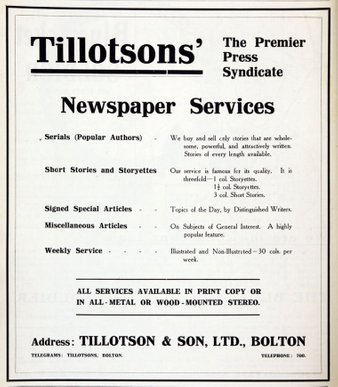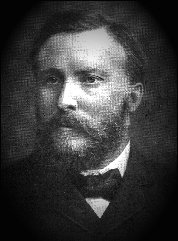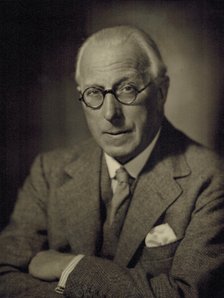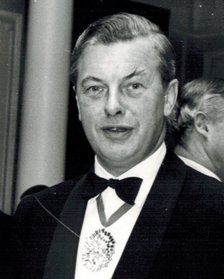Tillotsons
A history of the Tillotson family from Bolton, Lancashire, from 1831
email: petertillotson@btinternet.com
Extract from Mercury Spring 1967
Click here to go to original article
THE ESSENTIALS ARE UNCHANGED
By Tom Cooke
When the 23-year-old William Frederic Tillotson eagerly scanned the damp sheets of the first Evening News on that March day in I867 it is extremely doubtful if he realised just what he had begun.
He would, of course, be a proud man as he realised that he had published the first halfpenny evening paper in England, apart from a shipping paper in the north-east. He would have high hopes for the success of his bold venture.
But could he have visualised that from this modest, four-page paper would emerge the Evening News as it is today: prosperous, well-equipped and selling nearly 90,000 copies each evening?
‘W.F.’ would be amazed if he were able to handle today’s 24-page Evening News, with its modern make-up, pages of pictures, news and features, its columns of classified and display advertising. Yet I am sure he would very soon recognise it as a true descendant of the paper that he created.
For, however much appearance and size may have changed, the Bolton Evening News retains the essentials of its predecessors of a century ago.
Firstly, it remains a family-owned newspaper, owned and run by his own grandchildren. Too much cannot be made of this remarkable achievement. For more than 40 years provincial evening papers have been disappearing, one by one, into the great newspaper chains. I am proud that the Evening News is one of the minority which remain independent, and that it shows every indication of going on to complete its second century still in the ownership of the Tillotson family.
What else would ‘W.F.’ recognise? Undoubtedly the leader columns, which continue the tradition, established very early in our history, of independent, progressive views, particularly on all local affairs. Throughout its long life the Evening News has always been in the forefront of progress in Bolton, whether it was for improvement to the town or im- provement in the lot of its citizens.
That remains our policy. Within the last 12 months we have campaigned for a very wide range of causes, ranging from smokeless zones and the Clean Air Act to the preservation of the beauties of the Lake District. Sometimes the paper has not seen eye to eye with the Town Council but it has always pressed for what it believed to be progress in the true sense of the word, regardless of party and sectional interests.
As I write we are giving the proposal for a live theatre in Bolton our full support; we have criticised the majority party on the Council for throwing out an overspill scheme that would have increased Bolton’s population by 20,000; we are at odds with the local education authority and, indeed, with the grammar and secondary school headmasters because they will not now permit us to publish the results of the GCE ‘O’ level examinations. In this last case the battle will continue, for it involves what the Evening News considers a vital principle of a free press: the right to publish news of legitimate public interest.
Another link with the early years is the Readers’ Letters feature. Our readers show their interest in us by writing in on every conceivable subject and letting us know in the plainest terms whether they approve or disapprove of our policy. Not only this: the feature serves as a public debating forum for the whole area, and letters flood into our oflices whenever there is a subject which really arouses public feeling. A lively Readers’ Letters feature is always a tonic to an editor. He knows that when readers write, they are reading the paper. By that test the Evening News passes with flying colours, and the present editor is correspondingly pleased.
‘W.F.’ would, I am sure, be happy to see the large amounts of space devoted to local news and pictures. From its earliest days the Evening News has always been convinced that its readers were entitled to have the best possible news service of their own area. This policy remains and, indeed, is being strengthened in the light of present-day needs, when local news is the one ingredient with which an evening paper can ‘scoop’ the television and radio bulletins. A thirty-second TV flash is no substitute for a comfortable half-hour with the local paper.
Finally, our founder would realise that the paper had not changed at all in its method of production. Tonight’s Evening News is bigger, produced far quicker, and is in every way superior to its ancestor. But it is printed on rolls of newsprint which are not very far removed from the single sheet of that first issue. The type is still made of metal, even though the type-setting machines introduced at the end of the last century greatly increased the speed of production. The rotary printing presses are direct descendants of the machines used during the paper’s early years. The only important change is the introduction in recent years of electronically etched halftone blocks to reproduce photographs, replacing the old ‘wet process’ method.
It is in these production methods that the Evening News may well take its biggest leap forward in the not too distant future. Already computer-assisted type-setting machines are working in America and in one or two offices in Britain. Web-offset printing presses, which give the facility for full colour reproduction, are well established among weekly papers. The end of the era of hot metal type is in sight.
True, there are a good many snags still to be ironed out before an evening paper of our size can confidently plunge into this exciting new world of colour and freedom from the tyranny of metal. There are still technical improvements to come; the economics of the new processes have yet to become as attractive as those of their predecessors. But I have no doubt that the Evening News of the 1970s will be an altogether more colourful, attractive and successful production than its admittedly successful counterpart of today.
I am equally sure that despite any changes in production and appearance the Evening News will preserve those essentials which, over the past century, have stood it in good stead. Local news, honestly presented….progressive views, fearlessly expressed….a close and continuing association with its readers….These are the essentials which each issue of the Evening News has included, right from that day in 1867. We shall continue to hold fast to them and to our readers.
Extract from from Mercury Spring 1967
THREE GENERATIONS
The Bolton Evening News was established as a halfpenny evening newspaper in 1867 by a Bolton printer, the late Mr W. F. Tillotson, and it remains in the possession of the family today, his last surviving son and his grandsons being the only directors and all taking an active interest in the printing and newspaper business of the firm.
This was the introductory paragraph of evidence given before the Royal Commission on the Press in April, 1948. It sums up not only the family control of the newspaper group, which on March 19th will have existed for 100 years but also the close personal relationship which has been maintained between employer and staff throughout its existence.
The founder, William Frederic Tillotson, launched the Evening News on his 23rd birthday. He was a man of immense energy who possessed the great virtue of straight-forwardness, and inspired in his employees an immense loyalty. He founded not only a newspaper but also a tradition of goodwill between employer and employee that was carried on by his sons and by the present generation of the Tillotson family. In the history of the firm this family spirit has been strengthened as sons and daughters have followed their fathers into the business and a notable feature of the past I00 years has been that a number of people have given a life-time’s service. The management have fostered this relationship in various ways by their day to day contact with their employees, by rewarding long service by making monetary gifts at 25, 40 and 50 years, and by ensuring that employees have shared in every anniversary celebration. These have included not only company occasions but such personal events as the wedding celebration of the late Mr F. L. Tillotson in I942 and of the present chairman of the company Mr Marcus Tillotson in 1946.
When Mr W. F. Tillotson died at the age of 44 he had earned a place as one of Bolton’s great citizens. As they became old enough his sons entered the business. Mr ]ohn and Mr Lever Tillotson developed the box-making and printing activities of the firm and Mr Fred Tillotson took on responsibility for the architects of the success of the newspapers and indeed occupied the editorial chair during the two world wars. He was editor from I913 to 1927 and again from 1941 to 1945. When the parent firm was divided into three subsidiary companies in I919 he became the first chairman of Tillotsons Newspapers Limited, and in I940 when Mr Lever Tillotson died he also became chairman of the present company. Altogether he was a director of the company for 56 years. A man of outstanding business ability Mr Fred will always be remembered for the great personal interest he took in every member of the staff.
Mr Fred retired from the chairmanship of the group company in I954 and from the chairmanship of the newspaper company in 1956 and employees felt his death on September 2nd 1958 as a great personal loss. The three sons of Mr Fred all entered the firm in the newspaper olfices in Mealhouse Lane, Mr John and Mr Marcus in the immediate pre-war years and Mr Alan on demobilisation in I946. Subsequently Mr John and Mr Alan allied their interests to the printing and packaging factories in the group and Mr Marcus succeeded his father in 1956 as chairman of Tillotsons Newspapers Limited. He had been appointed a director with the responsibility for production in 1946 and a director of the parent company in 1941.
He was the first chairman in I948 of the Young Newspaper Man’s Association and its first president the following year and at the present time he is president of the Newspaper Society. It is a happy coincidence that the centenary of the Evening News comes within his year of office and this has been marked by Mr Marcus by a presentation of a jewelled medallion.
Whilst the last dozen years have been remarkable for the expansion which has taken place within the group as a whole the newspapers have also moved ahead under the chairmanship of Mr Marcus. The interior of the Mealhouse Lane premises was completely modernised in 1960/61 to provide the newspapers with one of the most modern headquarters in the country. In 1960 an entirely new weekly newspaper, the Stretford and Urmston Journal was added to the Lancashire Journal Series and starting from scratch it has built up a circulation of over 12,000. Three years later the four papers of the Stoke City Times series were purchased and these are printed at Bolton. Branch offices of the Evening News have been established at Bury, Walkden, Hindley and existing offices have all been modernised. In January I962 the Evening News pioneered in the North the use of pre-print colour in advertising.
Mr Marcus celebrated his 50th birthday in November 1965 and was presented with an antique silver paper-knife by the managers and foremen.
W F Tillotson
Fred Tillotson
Marcus Tillotson



